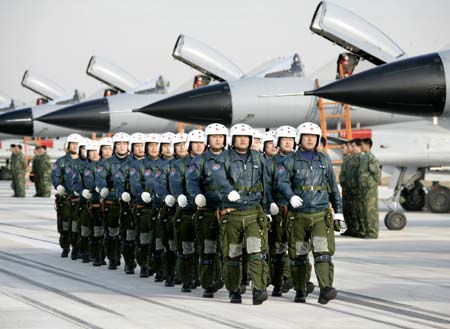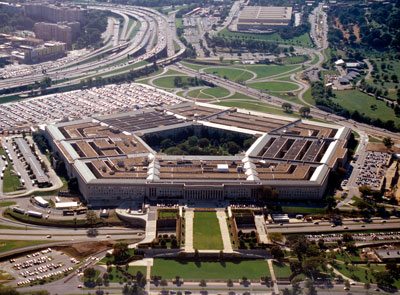China plans to raise its defense budget by 12.2 percent to 808.2 billion yuan (about 132 billion U.S. dollars) in 2014, according to a draft budget report submitted to the national legislature for review on Wednesday.
In 2013, the country spent 720.197 billion yuan on national defense, a 10.7-percent increase from the previous year.
Double-digit growth in China’s defense budget in recent years has caused concerns from some western countries. But experts said China’s military expenditure is moderate and in line with the country’s economic and security conditions.
Chen Zhou, a researcher with the Academy of Military Sciences and a deputy to the National People’s Congress (NPC), said China’s current military spending is at a “reasonable and balanced” level.
“Compared with major powers in the world, China’s spending in national defense is considerably low either in terms of its share in the GDP or in per capita terms,” he said.
“In order to protect the country and safeguard regional peace and stability, China has to enhance its national defense,” he said.
Chen acknowledged that China is under increasing strategic pressure, as the Asia-Pacific region has become a global geo-political and economic center, with some major powers “speeding up strategic adjustments and strengthening military alliance.”
Highlighting rising maritime security risks, territorial and maritime disputes, as well as terrorist threats, Chen said “the comparatively low level of input into national defense, coupled with a high-risk security environment, dictates that we must raise our defense budget on a moderate scale.”
Chen’s words were echoed by Yin Zhuo, director of the Expert Consultation Committee of the People’s Liberation Army (PLA) Navy, who said China’s military spending is still far from the level it needs to be as the country faces increasingly severe security challenges.
Although the rise in the defense budget in the past three years has surpassed GDP growth, the share of military spending in China’s GDP stood at less than 1.5 percent last year, well below the world average of 3 percent, Yin said, citing statistics.
A report released by London’s International Institute for Strategic Studies showed the United States remained the world’s biggest defense spender in 2013, with a budget of 600.4 billion U.S. dollars in 2013.
Chen attributed the defense budget increase partly to the increasing international responsibilities China is facing.
China is the largest personnel contributor to UN peace-keeping missions among the five permanent members of the UN Security Council. It also regularly sends naval task forces to conduct escort missions in the Gulf of Aden and off the coast of Somalia.
“Overseas missions cost several times more than those within the country,” Chen said. “By moderately raising its defense budget and enhancing its military capabilities, China is also capable of making more contributions to world peace.”










